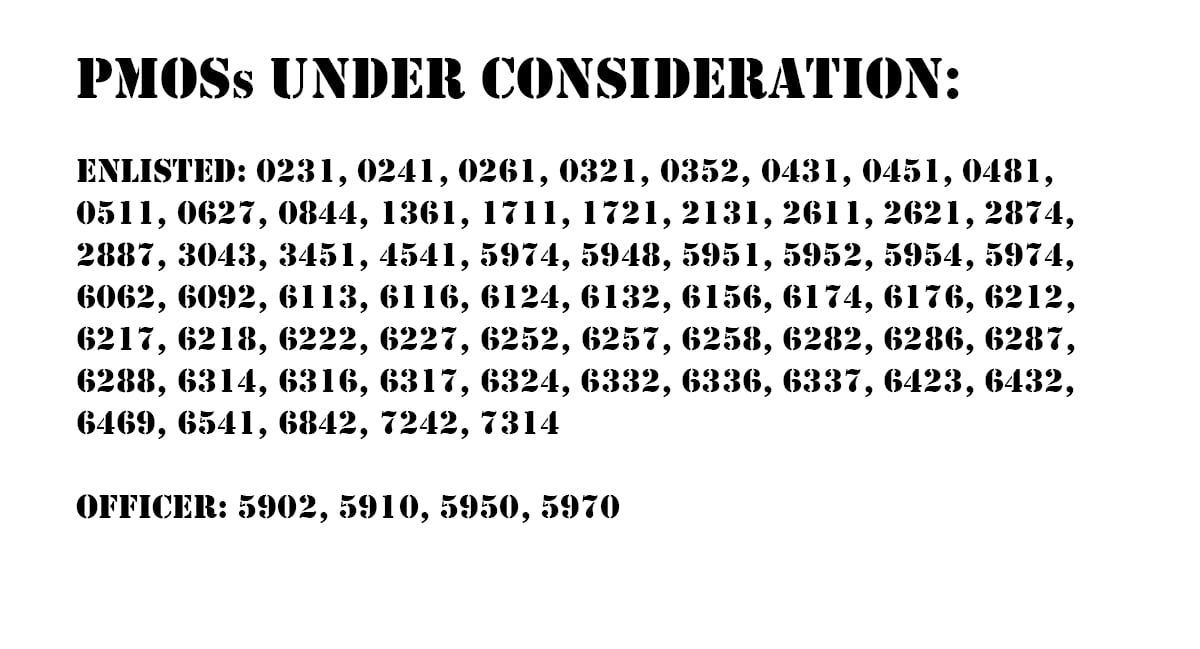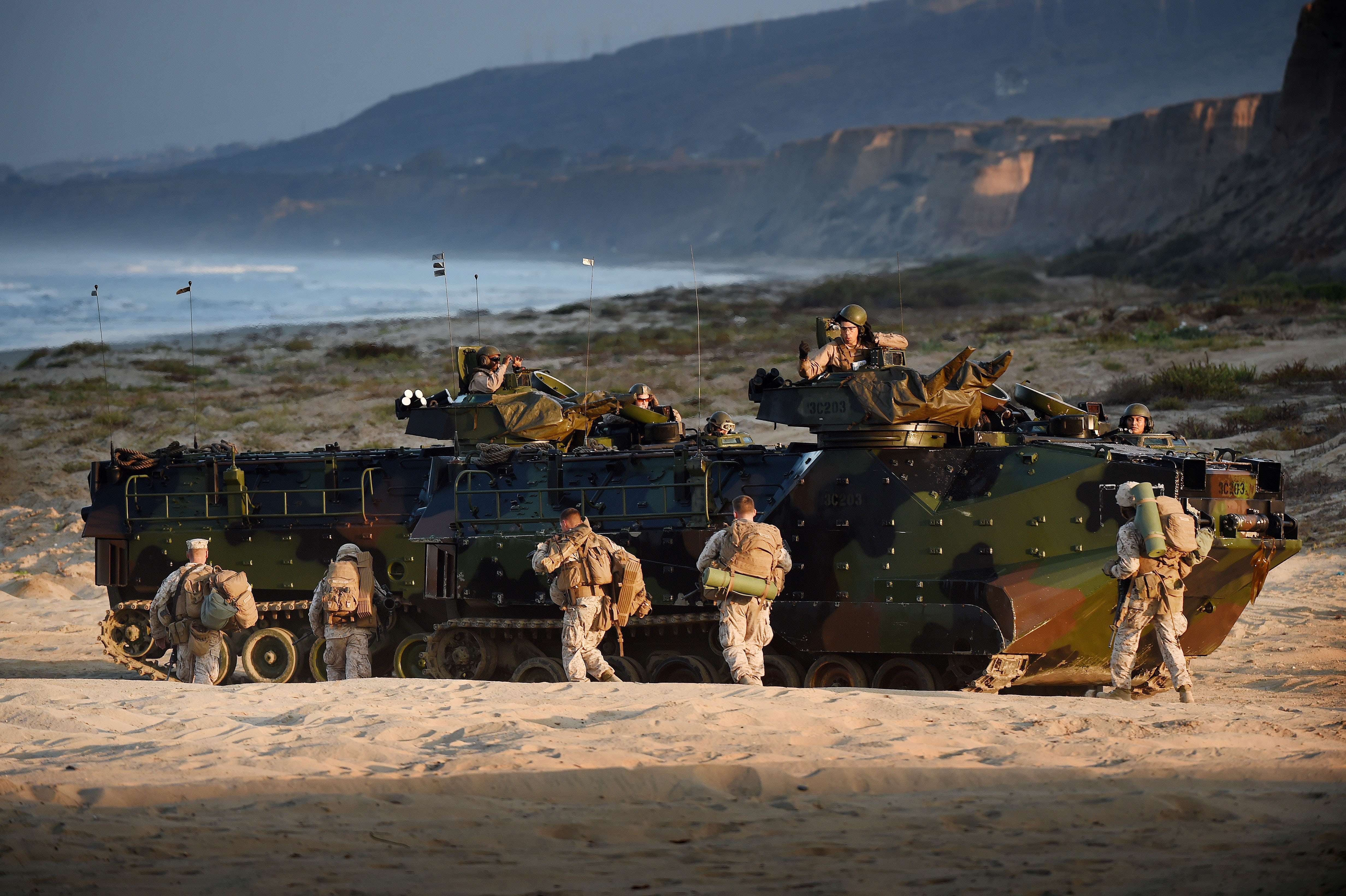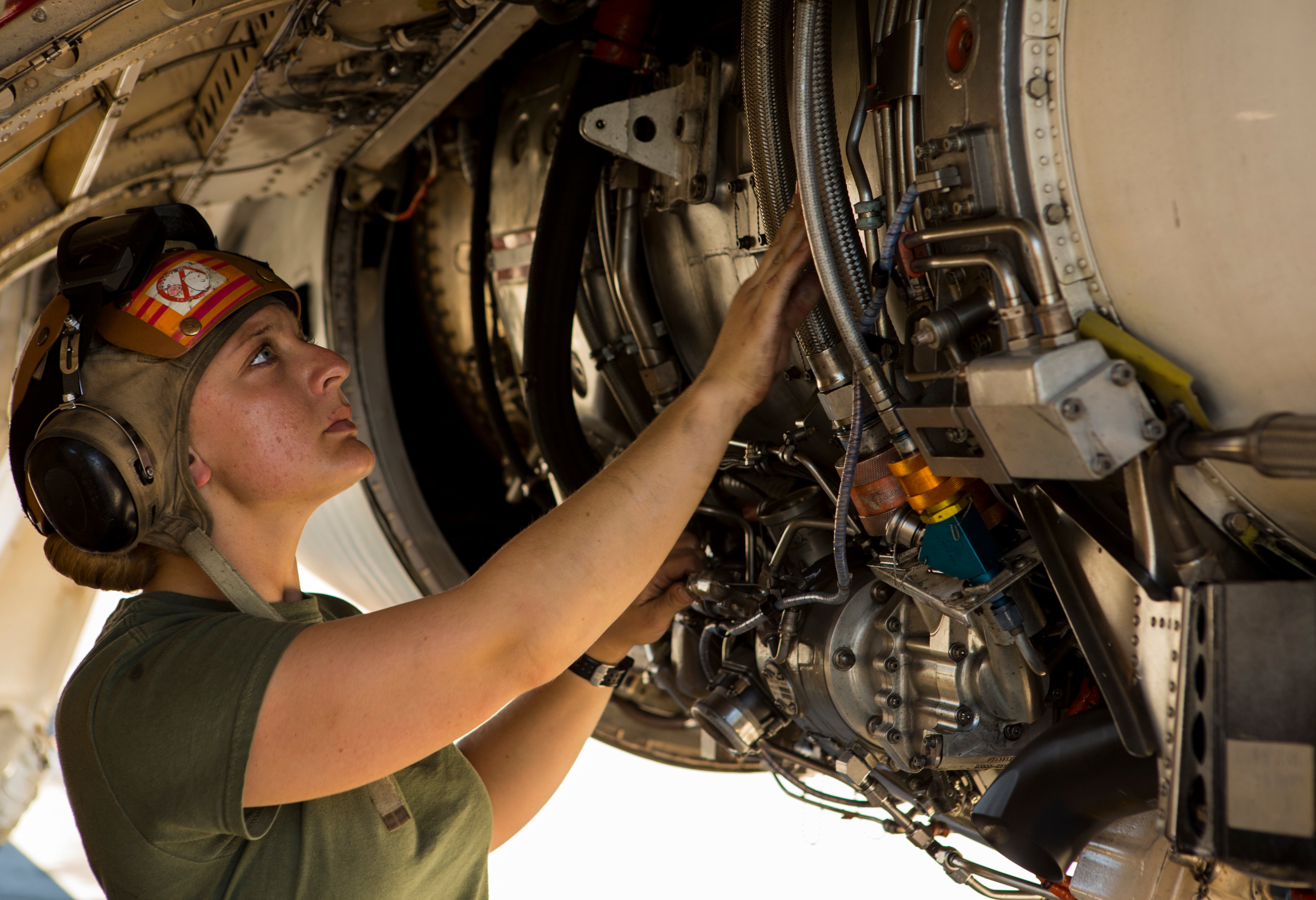The Marine Corps will conduct a review of 67 enlisted and officer military occupational specialties to ensure promotion and retention of Marines at the correct rate given the Corps' new force design for 2030, according to a Marine Corps administrative message.
The review, which was scheduled to begin Oct. 2, will only look at the active duty component and hopes to “correct grade pyramid imbalances caused by Force Design,” the early October MARADMIN said.
“If unresolved, grade pyramid imbalances could lead to changes in promotion timing or unintended inventory development challenges such as low retention of lower grade inventory that ultimately causes inventory shortages in higher grades,” the MARADMIN added.

The new force design was released by the Marine Corps in March, and will see the Corps get rid of all its tanks, reduce the number of traditional field artillery batteries in favor of rocket batteries, reduce the size of F-35 squadrons and an overall reduction of 12,000 Marines across the force.
In the months since the force design plan was rolled out, the Corps already has found “imbalances” in the jobs being reviewed in October, Maj. Joshua Benson a Marine Corps spokesman told Marine Corps Times in an email.
“We are aware of imbalances, hence the initiation of the review,” Benson said in the email. “Upon the completion of the review, changes are expected to be distributed in the ASR being released in November 2020."
Of the 67 Marine Corps jobs being reviewed 63 are on the enlisted end and include a review of the 0231 intelligence specialist MOS, the 0321 reconnaissance Marine MOS, the 0844 field artillery fire direction control MOS and 5974 tactical data systems administrator MOS, the MARADMIN said.
Military occupational specialties related to aviation will be the most reviewed with 31 of the jobs that will be looked at coming from either aviation or avionics maintenance field, according to the MARAMIN.
RELATED

The four officer jobs being reviewed are the 5902 electronics maintenance officer MOS, the 5910 aviation radar maintenance officer MOS, the 5950 air traffic control systems maintenance officer MOS and the 5970 systems maintenance officer MOS, the MARADMIN said.
The Marine Corps is currently in phase three of the force design process focusing on conducting real-world experiments on the force design plan looking for any weaknesses or gaps that may cause alterations to the plan.
The results of the future experiments may require the Corps to conduct future structure reviews when adjustments to the force design are made, Benson said in the email.
“Phase III is a multiyear evolution that gets us to a force that is optimized to operate and thrive in a peer competitor environment by 2030,” Lt. Gen. Eric Smith, the deputy commandant for combat development and integration, said in an emailed statement.
“We’re moving as fast as we can, but the commandant’s goal was a force that when 2030 arrives, we will be fully operationally capable,” Smith said.
“This isn’t going to happen in the next six months, or even one or two years."




